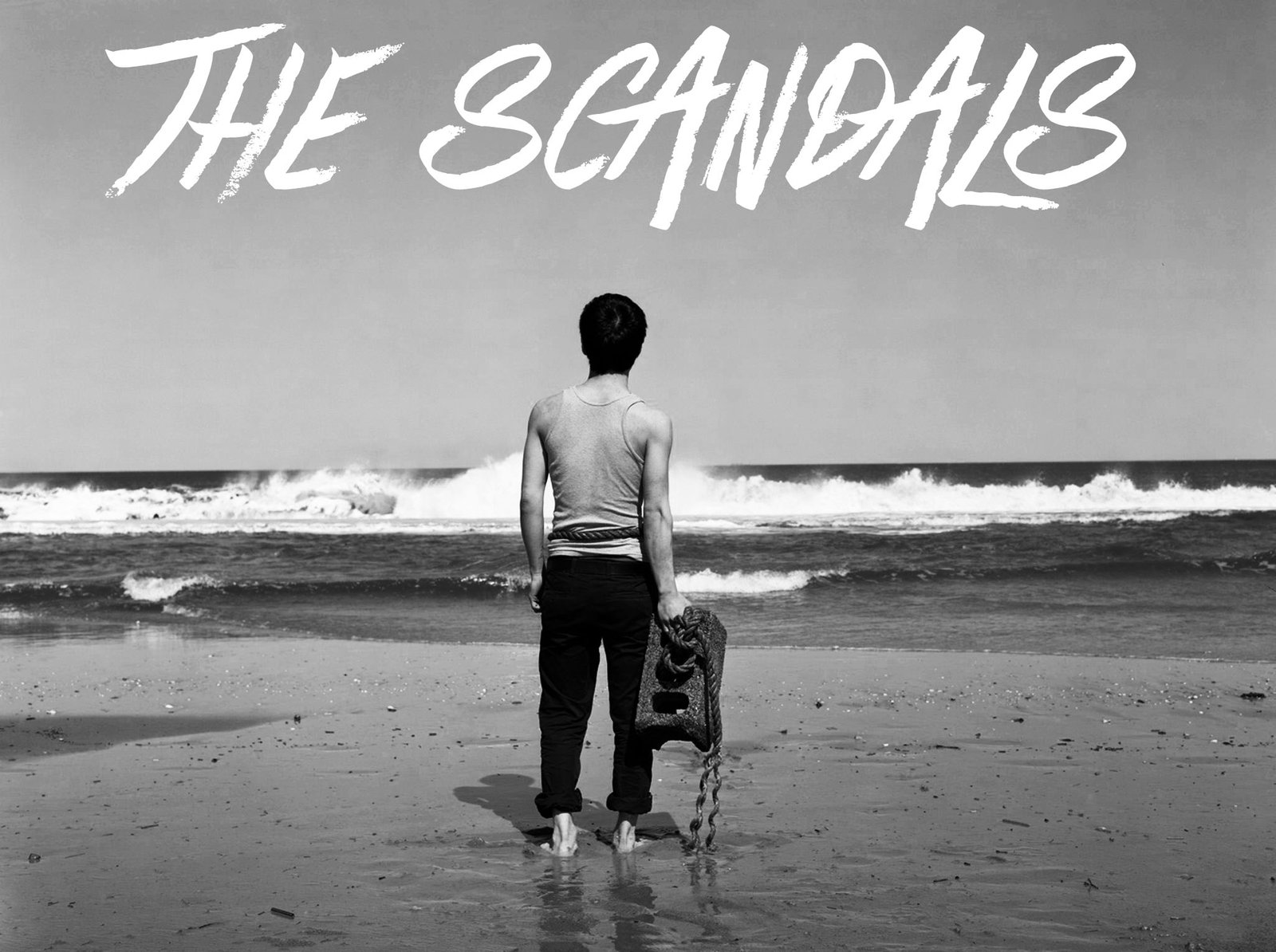Scandals: The Juicy Side Of Life That Keeps Us Talking
Scandals have been around since the dawn of time, shaping our history, culture, and even our daily conversations. Whether it's a political drama, celebrity mishap, or corporate misconduct, scandals always seem to grab our attention. They're like the gossip version of breaking news, and honestly? We can't get enough of them. So, what exactly makes scandals so irresistible? Let's dive in and find out.
You know that feeling when you're scrolling through your social media feed, and suddenly, a headline pops up that makes you pause mid-scroll? It's usually something scandalous. Scandals are like the drama queens of the news world, always ready to serve up a dish of intrigue, betrayal, and sometimes, a little bit of chaos. And honestly, who doesn't love a good drama every now and then?
But here's the thing: scandals aren't just about juicy gossip. They often reveal deeper issues, whether it's corruption in high places, systemic problems, or even personal flaws that we can all relate to. So, while we might be entertained by the spectacle, scandals also have the power to spark important conversations and even drive change. Now, that's something worth talking about, right?
- Baldwin Brothers The Powerhouse Family In Hollywood
- Does Lauren London Have A Sister Uncovering The Truth About Her Family
What Exactly Are Scandals Anyway?
Let's break it down. A scandal is basically any situation that causes public shock, outrage, or disbelief because it goes against societal norms or expectations. Think of it like a big, flashy sign that says, "Hey, something's not right here!" Scandals can take many forms, from political corruption to celebrity meltdowns, and everything in between.
One thing that makes scandals so fascinating is how they expose the hidden truths behind the scenes. It's like pulling back the curtain to reveal what's really going on. And let's be real, sometimes what we find is shocking, but other times, it's just plain ridiculous. But either way, it keeps us hooked.
Why Do We Love Scandals So Much?
Humans are naturally drawn to drama. It's like a built-in feature of our brains. Scandals give us a chance to peek into the lives of others, whether they're politicians, celebrities, or even our next-door neighbors. It's like a real-life soap opera, and we can't help but tune in.
- Where Does Laufey Live Unveiling The Mythical Home Of A Legend
- Is Knox Joliepitt Transgender Unpacking The Facts And Debunking The Myths
But there's more to it than just entertainment. Scandals often reflect our own fears, desires, and insecurities. When we see someone else's downfall, it can make us feel better about our own lives. It's like saying, "Well, at least I'm not THAT bad!" And let's not forget the thrill of being in the know, sharing the latest scoop with friends, and feeling like part of an exclusive club.
The Psychology Behind Our Scandal Obsession
Psychologists have actually studied why we're so fascinated by scandals, and it turns out, there are some pretty interesting reasons. For one, scandals activate our brain's reward system, giving us a little hit of dopamine every time we hear a juicy detail. It's like a drug, but instead of coffee or chocolate, it's gossip.
Another reason is that scandals help us make sense of the world. When something scandalous happens, it forces us to question our beliefs, values, and even the systems we rely on. It's like a wake-up call that says, "Hey, maybe things aren't as perfect as they seem." And while that might be uncomfortable, it's also an opportunity for growth.
Types of Scandals: From Politics to Pop Culture
Not all scandals are created equal. Some are more serious than others, and they can have different impacts depending on who's involved and what's at stake. Let's take a look at some of the most common types of scandals and what makes them tick.
- Political Scandals: These are the big ones, involving corruption, abuse of power, or other unethical behavior by politicians or government officials. Think Watergate, Lewinsky, or any number of other high-profile cases.
- Celebrity Scandals: Whether it's a scandalous breakup, a public meltdown, or a controversial tweet, celebrity scandals are always good for a laugh (or a gasp).
- Corporate Scandals: When big companies get caught doing shady things, it can have serious consequences for employees, customers, and shareholders. Think Enron, Volkswagen, or Theranos.
- Personal Scandals: Sometimes, it's just everyday people getting caught up in something scandalous, whether it's cheating, lying, or some other form of bad behavior.
Which Type of Scandal Is the Most Impactful?
It really depends on the situation. Political scandals can have far-reaching consequences, affecting entire nations or even the world. Corporate scandals can ruin reputations and cost billions of dollars. And while celebrity scandals might seem trivial, they can still have a big impact on pop culture and public opinion. But at the end of the day, any scandal that gets people talking has the potential to make a difference.
Historical Scandals That Changed the World
Throughout history, scandals have played a major role in shaping societies and cultures. Some of them have even led to significant changes in laws, policies, and social norms. Let's take a look at a few of the most famous scandals that left a lasting impact.
One of the biggest scandals in modern history is Watergate, which led to the resignation of U.S. President Richard Nixon. Another famous scandal is the Monica Lewinsky affair, which dominated headlines in the late 1990s and led to President Bill Clinton's impeachment. And let's not forget the Panama Papers, which exposed widespread tax evasion and money laundering by wealthy individuals and corporations around the world.
Lessons Learned from Historical Scandals
So, what can we learn from these scandals? For one, they show us the importance of transparency, accountability, and ethical behavior. They also remind us that no one is above the law, no matter how powerful or influential they may be. And finally, they highlight the power of the press and the public to hold people accountable when they do wrong.
The Role of Media in Scandals
Media plays a crucial role in uncovering and reporting scandals. Journalists and investigators often spend months, if not years, digging into stories and uncovering the truth. But with the rise of social media, anyone can now be a part of the scandal machine, sharing news and opinions with the click of a button.
However, this also means that misinformation can spread quickly, and sometimes, the truth gets lost in the noise. That's why it's important to rely on credible sources and fact-check information before believing everything you read online.
How Social Media Has Changed the Game
Social media has completely transformed the way we consume and share information about scandals. Platforms like Twitter, Instagram, and TikTok allow users to share updates in real-time, making it easier than ever to stay informed. But it also means that scandals can go viral in a matter of seconds, amplifying their impact and reach.
For example, the #MeToo movement gained momentum through social media, as survivors of sexual harassment and assault shared their stories and demanded justice. This shows how powerful social media can be in driving change and holding people accountable.
The Impact of Scandals on Society
Scandals can have both positive and negative effects on society. On the one hand, they can expose wrongdoing and lead to reforms. On the other hand, they can also create division, distrust, and even chaos. It's a double-edged sword that we have to navigate carefully.
For example, scandals involving political figures can erode public trust in government institutions, making it harder for leaders to govern effectively. Similarly, corporate scandals can damage consumer confidence and lead to economic instability. But at the same time, scandals can also spark important conversations and drive meaningful change.
How Can We Navigate Scandals in a Healthy Way?
First, it's important to stay informed and seek out credible sources of information. Don't just rely on headlines or social media posts – dig deeper and try to understand the full story. Second, be mindful of how you react to scandals. It's okay to be outraged or disappointed, but try not to let it consume you. Finally, use scandals as an opportunity to reflect on your own values and beliefs, and consider how you can contribute to positive change.
Scandals in Pop Culture: The Good, the Bad, and the Ugly
Celebrity scandals are a staple of pop culture, and they often make for some of the juiciest stories. From Britney Spears' infamous head-shaving incident to Kanye West's various controversies, there's no shortage of drama in the world of entertainment. But while these scandals might seem trivial, they can still have a big impact on public perception and even the industry itself.
For example, the #OscarsSoWhite movement highlighted the lack of diversity in Hollywood and led to changes in the Academy's voting process. Similarly, the backlash against Harvey Weinstein and other powerful figures in the entertainment industry sparked a global conversation about sexual harassment and gender inequality.
When Does a Scandal Go Too Far?
There's a fine line between holding people accountable and invading their privacy. While it's important to expose wrongdoing, we also need to be mindful of the consequences for the individuals involved. Sometimes, scandals can ruin lives, even if the person in question didn't do anything wrong. It's a delicate balance that we all need to be aware of.
Conclusion: Scandals Are Here to Stay
Scandals may not always be pretty, but they're a part of life that we can't ignore. They have the power to entertain, inform, and even inspire change. Whether it's a political drama, a celebrity meltdown, or a corporate scandal, they keep us talking and thinking about the world around us.
So, the next time you come across a scandalous headline, take a moment to reflect on what it means and how it fits into the bigger picture. And remember, while scandals may be juicy, they're also an opportunity to learn and grow. Now, go ahead and share this article with your friends, and let's keep the conversation going!
Table of Contents
- What Exactly Are Scandals Anyway?
- Why Do We Love Scandals So Much?
- Types of Scandals: From Politics to Pop Culture
- Historical Scandals That Changed the World
- The Role of Media in Scandals
- The Impact of Scandals on Society
- Scandals in Pop Culture: The Good, the Bad, and the Ugly



Detail Author:
- Name : Tate Adams DDS
- Username : hhayes
- Email : kunze.tiana@satterfield.net
- Birthdate : 1981-01-10
- Address : 8070 Cassin Ways Apt. 990 Majorborough, MD 40186
- Phone : 731.386.3542
- Company : Goodwin and Sons
- Job : Engineer
- Bio : Sed omnis dicta tenetur id incidunt sequi. Sunt minus at quos dignissimos. Fugiat itaque eos rerum debitis. Accusamus quidem id illum et nemo dolores.
Socials
twitter:
- url : https://twitter.com/romaine.schaefer
- username : romaine.schaefer
- bio : Maiores laudantium assumenda ullam voluptatem sit minima. Velit est delectus temporibus aperiam et.
- followers : 2844
- following : 1160
tiktok:
- url : https://tiktok.com/@romaine.schaefer
- username : romaine.schaefer
- bio : Odio unde sit fugiat nihil sequi qui. Quo fuga dicta hic.
- followers : 5787
- following : 2905
facebook:
- url : https://facebook.com/schaeferr
- username : schaeferr
- bio : Ea reprehenderit voluptatum vitae. Quo quo unde voluptas voluptas illum quia.
- followers : 4642
- following : 2257